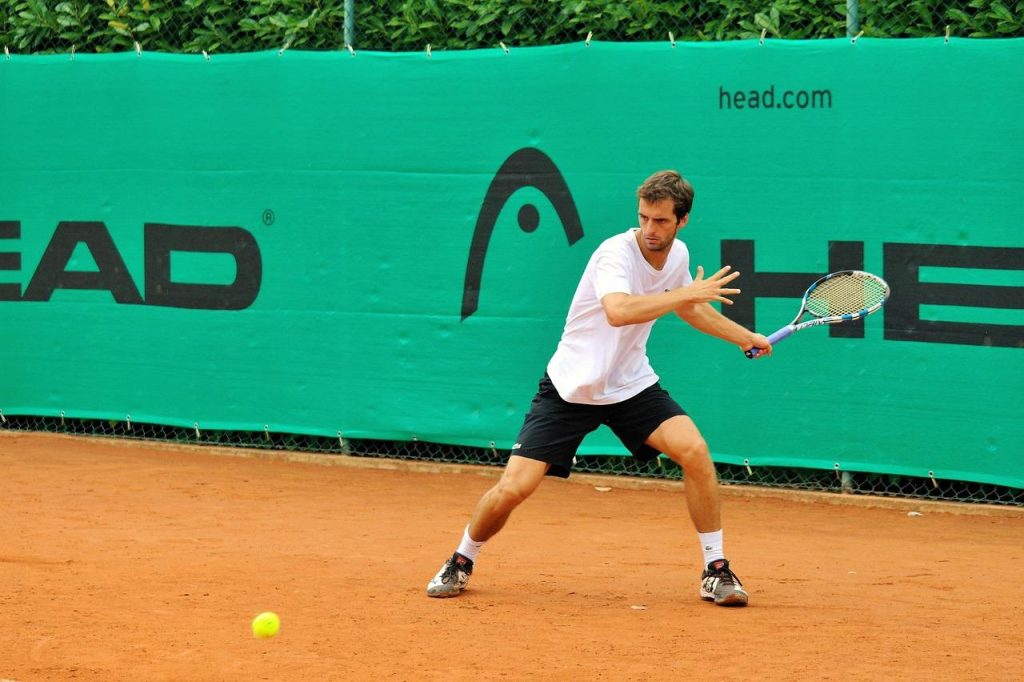In the high-stakes world of professional tennis, where resilience often defines champions, Naomi Osaka’s recent emotional exit from Wimbledon has cast a rare, poignant shadow. The four-time Grand Slam winner, known equally for her powerful play and candid vulnerability, has described herself as a “negative human being” in the aftermath-a striking self-reflection that deepens the conversation about mental health and pressure in elite sports. This candid admission not only reveals the emotional toll elite competition can exact but also invites a broader dialogue about the complex humanity behind the superstar.
Naomi Osaka’s Candid Reflection on Mental Health Challenges in Professional Tennis
In a rare and heartfelt admission, Naomi Osaka opened up about the intense psychological struggles she faces on the professional tennis circuit, describing herself in stark terms as a “negative human being.” This candid reflection came in the wake of her emotionally charged exit from Wimbledon, where the weight of expectations and relentless media scrutiny seemed to converge against her. Osaka’s vulnerability shines a light on the often unspoken mental health battles athletes endure behind the scenes-challenges that extend far beyond the physical demands of the sport.
Her honesty further ignites an important conversation around mental well-being in high-performance environments. Key points from her reflection include:
- The isolating pressure of maintaining public poise while managing private turmoil.
- The stigma attached to discussing mental health openly among elite athletes.
- Her quest for self-acceptance amidst moments of perceived failure and public judgment.
- The growing need for comprehensive support systems within professional sports organizations.
Analyzing the Emotional Impact of Wimbledon on Elite Athletes
The intense pressure to perform at Wimbledon, one of tennis’s most prestigious stages, often pushes elite athletes to emotional extremes. Naomi Osaka’s recent self-description as a “negative human being” following her exit highlights the profound psychological toll these high-stakes competitions can exact. Beyond physical endurance, players grapple with the weight of expectations-both internal and external-that can amplify feelings of self-doubt and frustration. Such raw transparency from top-tier players sheds light on how the court becomes a battleground not only for victory but for mental resilience.
Key factors contributing to this emotional rollercoaster include:
- Media scrutiny: The relentless spotlight magnifies every success and setback, intensifying self-criticism.
- Public expectations: Fans and sponsors often attach monumental hopes to athletes, increasing pressure.
- Personal ambitions: The drive to cement legacy can lead to internal conflict when outcomes fall short.
- Isolation: Despite fame, the often solitary nature of tennis competition can compound emotional stress.
Understanding these dynamics is crucial in appreciating the emotional fortitude required to compete at such elite levels, reaffirming that the human behind the athlete is navigating far more than just a physical game.
Strategies for Supporting Mental Well-being in High-Pressure Sports Environments
Elite athletes like Naomi Osaka face intense scrutiny and expectation, often leading to heightened emotional vulnerability. To cultivate resilience, it is essential to integrate regular mental health check-ins and encourage open conversations about emotional struggles. Creating safe spaces within teams and coaching staff where athletes can freely express anxieties or doubts fosters a support network that transcends the physical demands of the sport. Developing mindfulness practices and stress management techniques can also act as powerful tools, helping athletes maintain focus while mitigating feelings of overwhelm during high-stakes moments.
Moreover, personalized mental well-being strategies should consider the unique personality and pressures each athlete encounters. Emphasizing balance through adequate rest, nutrition, and engaging in interests beyond sport replenishes mental energy and provides perspective. Incorporating professional counseling or sports psychologists into training teams normalizes mental health care and equips athletes like Osaka with strategies tailored to performance and life off the court. Ultimately, supporting mental well-being requires a holistic approach, merging emotional intelligence with athletic excellence to empower athletes to thrive both as competitors and as individuals.
- Regular mental health assessments
- Safe spaces for emotional expression
- Mindfulness and relaxation techniques
- Professional psychological support
- Balanced lifestyle outside of training
Recommendations for Athletes to Cultivate Resilience and Positive Self-Perception
Building resilience and fostering a positive self-perception are essential for athletes navigating the highs and lows of competitive sports. Embracing vulnerability can be a powerful step toward emotional growth-acknowledging setbacks, like Naomi Osaka’s candid admission of feeling “negative,” allows athletes to confront their internal struggles head-on. Practicing mindfulness and self-compassion can help transform limiting self-beliefs into constructive motivation, cultivating a mindset where setbacks are viewed not as failures but as opportunities for learning and improvement.
Practical strategies to nurture this mindset include:
- Journaling emotions : Capturing thoughts and feelings post-competition can clarify internal narratives and track emotional progress.
- Seeking mentorship : Connecting with experienced athletes or sports psychologists provides guidance in managing performance pressure and mental health.
- Developing routines : Consistent pre- and post-performance habits reinforce self-control and a sense of stability.
- Setting process-oriented goals : Focusing on effort and skill development rather than solely outcomes reduces anxiety and builds confidence.
By integrating these approaches, athletes can cultivate a resilient spirit paired with a positive self-image, turning challenges into stepping stones for enduring success.
Naomi Osaka’s candid reflection on her emotional Wimbledon exit offers a rare glimpse into the vulnerability behind the fierce competitor. Describing herself as a “negative human being” may sound harsh, but it reveals the weight of expectations and self-doubt that even the most gifted athletes carry. As fans and observers, we are reminded that behind every powerful serve and triumphant moment lies a deeply human story-one of struggle, resilience, and the ongoing pursuit of balance. Osaka’s journey is far from over, and it is this very honesty that will continue to inspire and resonate beyond the tennis courts.


